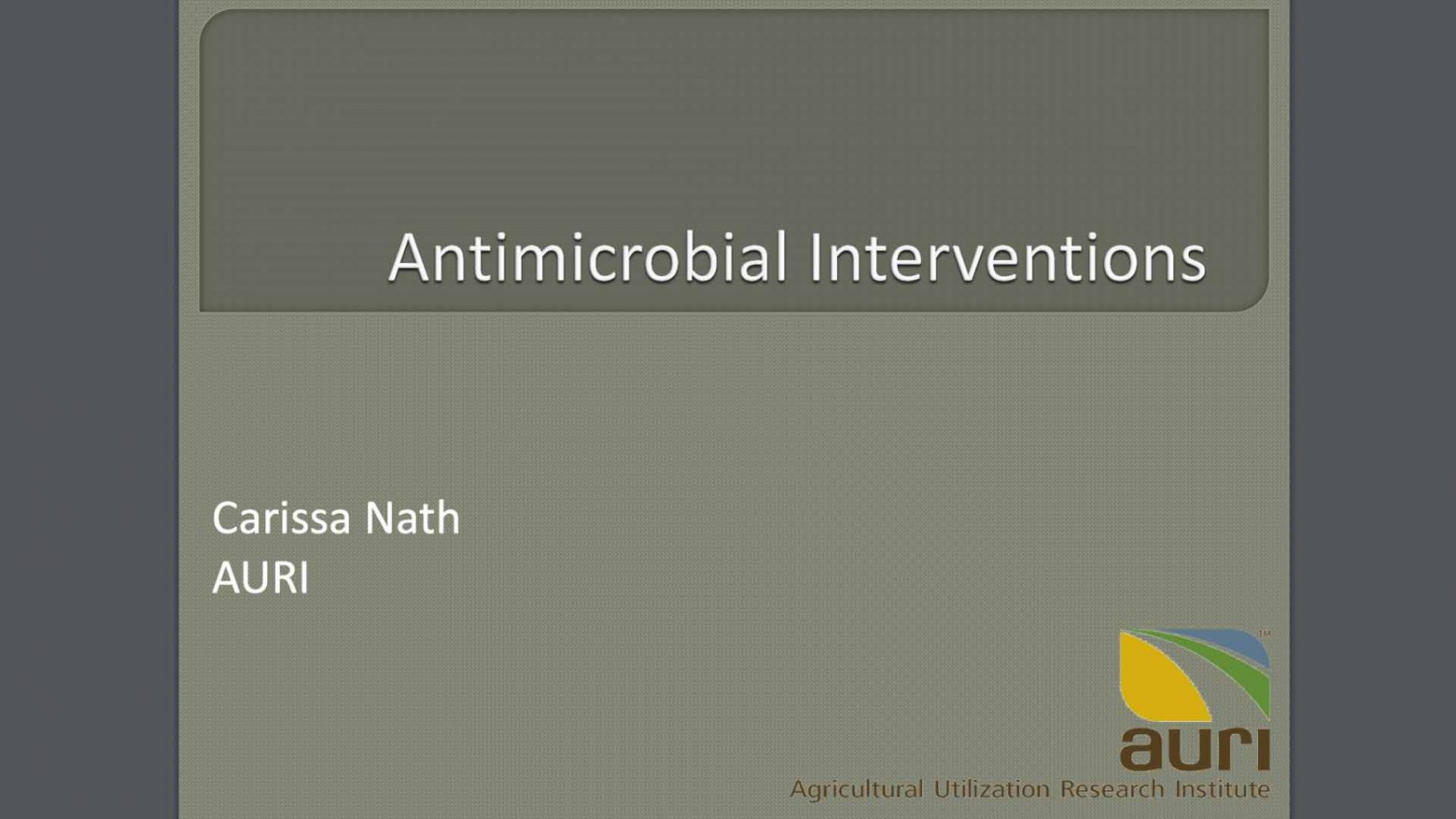View Food Safety Interventions Powerpoint
By Carissa Nath, AURI Meat Scientist
The livestock and meat industries have made huge strides over the last 10 to 15 years to ensure they are producing the safest food supply in the world. However, there continue to be a large number of foodborne illness outbreaks; a number of these outbreaks can be traced back to meat products.
The small meat processing industry in the state of Minnesota is large and brings in a lot of revenue. In order for these types of operations to remain competitive in the marketplace, they must continue to provide a safe and wholesome food supply. Small meat processors must have validated processes in place within their facility to produce a safe food supply.
There are numerous food safety or antimicrobial interventions that have been researched and implemented by the meat industry. Many of these are only applicable to large operations due to financing and capacity constraints for the smaller operations. However, there are several interventions that have been evaluated for smaller operations. The Food Safety Interventions for Small Meat Processors presentation was originally given at the 2012 annual convention of the Minnesota Association of Meat Processors (MAMP) and highlights the multi-hurdle concept approach to food safety. This presentation covers seven main areas and/or product categories in meat production and processing:
- pre-harvest or on-farm,
- hide interventions,
- carcass interventions,
- trim interventions,
- non-intact product interventions,
- ready-to-eat product interventions, and
- other further processing interventions.
This presentation explains the concern and then gives options for addressing those concerns. Therefore, the presentation is laid out in a way that first explains the concern with these certain areas and/or product categories and then gives examples of some interventions that address these particular areas and categories.
For more information on these food safety interventions or other meat science related questions, contact AURI Meat Scientist Carissa Nath.

